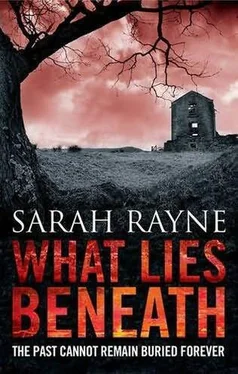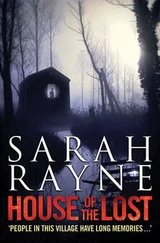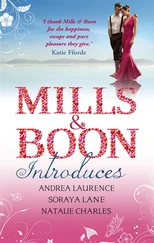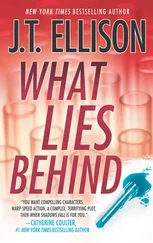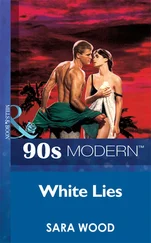As he said this the plane swooped low over the village in its shallow valley and, against the brightness of the morning, something white and billowing came looping down. They could see a black and lumpen parcel attached to it.
‘That’s it,’ said Clem. ‘That’s the bomb.’
‘It’s on the end of a parachute,’ said Veronica.
‘That’s to give the pilot time to get clear. My uncle said there would be a canister of Geranos, or maybe two canisters, and they’d explode when the plane gets clear.’
The plane was going away; they could see the outline against the clear sky.
‘How long before the bomb goes off?’ asked Veronica worriedly.
‘I don’t know. Not long, I shouldn’t think.’
‘It can’t reach us up here, can it? That Geranos stuff, I mean?’
‘I shouldn’t think so.’
As Clem said this, the air seemed to stir and shiver, and there was the distant sound of glass shattering somewhere within the village. A thin mist gusted upwards, like the spray from a churning lake.
Ella shuddered and clenched her fists, but Veronica sat up straighter and said, ‘Listen.’
‘What?’
‘Didn’t you hear it? Just very faintly?’
‘I can’t hear anything,’ began Ella, then stopped, because she could hear it as well.
A jangling discordance of music rose above the sounds of masonry falling and glass smashing and the fading note of the plane: music coming from the ancient church deep inside the dying village.
They sat in Mordwich Meadow for a long time. They were too upset to eat the sandwiches Ella’s mother had made, but Ella said it would be wasteful to throw them away and Veronica said it would be bad manners, so in the end they crumbled them up for the birds. Below them, Priors Bramley had settled back into its remote silence, although the mist lingered in wisps and curls on the air.
‘I did hear it,’ said Veronica stubbornly. ‘That music. I did.’
‘I heard it too,’ said Clem.
‘Then he’s alive, that man.’ Veronica’s eyes were round with the horror of it. ‘He got into the church and he’s playing the music. That’s the creepiest thing I’ve ever heard of. But we’ll have to tell somebody. They’ll have to go in to get him out.’
‘Vron, he’s dead,’ said Clem. ‘His back was all twisted and his eyes were open.’
‘Then who was making that music?’
‘It wasn’t real music,’ said Clem. ‘It was just a lot of jumbled notes. I think it was the organ pipes shuddering from the explosion. Like when you twang a string and it goes on thrumming for ages. The pipes might go on thrumming and twanging for ages.’
The thought of that ugly confused music thrumming all by itself in the deserted village was almost more than Ella could bear. She stared down at the cluster of buildings and at the thin moisture that lay everywhere. When they had looked down at the man’s body lying in its broken-doll tumble inside the chimney shaft she had been sure he was dead. Now she was not. His legs had stuck out at painful angles as if they were broken and his head was twisted to one side. But what if he had only been knocked out, and had come round and dragged himself as far as the church, hoping to get help?
But even if he had, it was too late now. The village was sealed and no one would go there for a very long time. It might be a year before the motorway was started, or even longer. If the man was alive he might scream for help until his throat burst, but there would be no one to hear him. And eventually he would die in there, he would die …
Ella was suddenly aware of two things. One was that she was quite hungry after all, and it was a pity they had fed all the sandwiches to the birds.
The other was that she was very glad indeed she had managed to kill the man in Cadence Manor. She had been terrified of him for a long time.
It was nearly a whole year since she had first seen the man. She and her mother had walked into Priors Bramley to the wool shop. It was late afternoon – a Saturday – and not many people were around.
‘Which is why it’s a good time for us to come,’ said Ella’s mother. ‘The shops are still open, but people are all in their houses by this time, making their supper.’
Most people called the evening meal ‘tea’, but Ella’s mother said ‘supper’ was the correct term. They would not aspire to dinner in the evening, which would have sounded pretentious, but supper was quite acceptable. Ella was not sure what pretentious meant, but she was careful to do what her mother said, even though people at school laughed, and said la-di-da and swank, and who did Ella Ford think she was?
It took Mum ages to buy the wool. All the colours had to be looked at and then there was a discussion as to which was the best quality. Ella became bored. She thought she would walk along the street and look at the church. Clem said it was really old and there were lots of interesting things in it: his father had told him all about it.
‘Well, come straight back,’ said her mother, when Ella asked if it would be all right to walk along to St Anselm’s. ‘Don’t speak to anyone you don’t know.’
Ella did not speak to anyone as she walked along because there was no one to speak to. She went slowly, liking the jumbly little shops of Priors Bramley and the jutting-out windows. The sun was setting, so there was a red glow in the sky, which made the village feel like something out of a fairy tale.
Here was the church. The red sunset was here as well, washing the leaves and the old grey stones of the walls with crimson. Ella went through the lich-gate, thinking if the door was open she would just peep inside the church. It would be all right; churches were places where people were always welcome, even tatty old churches like this one.
She was halfway along the path when she realized someone was playing music inside the church. It was organ music, of course, like they had at St Michael’s. Ella liked the music at St Michael’s; she enjoyed the hymns. She had never been in the organ loft there because the vicar would not allow children to go in, so it would be really good if she could peep into St Anselm’s organ loft; she could be one up on Clem and the others.
The church was quite a small one, much smaller than St Michael’s, but Ella saw at once it was not tatty in the least, in fact it was beautiful. She looked round, trying to see everything so she could tell Clem and Veronica on Monday. There were stone arches and carved panels with stories from the Bible. And there were narrow windows at the sides and behind the altar, with beautiful pictures in vivid blues and scarlets and greens. The sunset shadows lay everywhere, making soft harlequin patterns on the floor, the stained-glass colours of the windows glinting through them like jewels.
The music was still going on. It was happy music that made Ella think of things like harvest festivals and daffodils. It echoed and bounced all round the church, in and out of the stone arches and carvings, and Ella looked about her to see if she could get nearer.
On her left was a low archway with a narrow stairway beyond. That must be the stair up to the organ loft. But before she could think whether to go up there or not, the music started to change; it began to be frightening, as if something was creeping into the notes – like giants shouting, ‘Fee-fi-fo-fum’, like evil creatures in forests beckoning with long crooked fingers. Ella thought it might be better not to go up there after all. She was just tiptoing towards the door when the notes stumbled and made a series of jarring sounds. Mingling with the music came the sound of dreadful harsh sobbing, as if the organist could not bear to hear the music, or could not bear to have played it so badly. It went on for quite a long time, that sobbing, filled with pain and anger, and it made Ella’s entire skin prickle. What would make someone cry like that? She was afraid to move in case the organist heard her and came down the stairs, so she stood where she was, hardly daring to breathe.
Читать дальше
